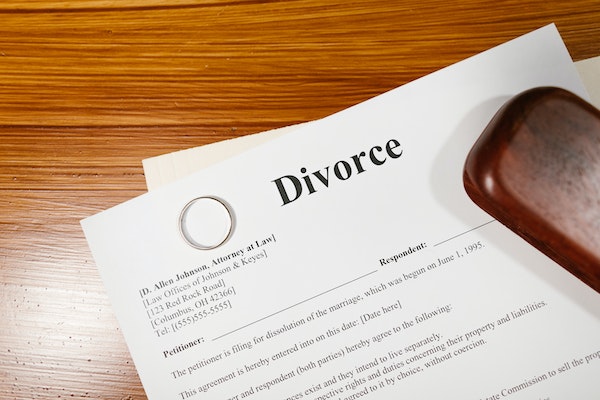Uncontested Divorce Vs. Traditional Divorce: Which Is Right for You?

Are you considering a divorce? Have you been weighing your options and wondering whether an uncontested or traditional divorce is the best choice for you?
Divorce can be one of the most difficult decisions a person will make in their lifetime. There are many things to consider, including what type of process will work best with your situation.
While both forms of divorce have pros and cons, they each come with unique benefits that could impact how smoothly your case proceeds. A divorce attorney can help you decide the best option for your unique circumstances.
This article explores the differences between an uncontested and traditional divorce so you can decide which option is right for you. Read on to learn more and contact Okoye Law for additional information.
What Is an Uncontested Divorce?
An uncontested divorce is when both parties involved in a marriage agree to end it without any dispute or disagreement. This type of divorce requires that the two spouses come to an agreement about how they will divide their assets and liabilities, as well as matters pertaining to child custody.
It also eliminates the need for court proceedings since there is no need for each spouse to prove fault on either side. The process is much simpler and quicker than traditional divorces, which require lengthy negotiations and often involve lawyers representing each party’s interests.
As such, uncontested divorces are typically less expensive and less time-consuming than traditional divorces.
Advantages of Uncontested Divorce
Uncontested divorce is often the most efficient and cost-effective way to end a marriage. The process can be quicker, less complicated, and involve fewer legal costs than traditional divorce proceedings.
This type of divorce does not require significant court involvement as both parties have already agreed on all major issues such as division of assets, child custody, and support.
Another benefit is that this method allows couples to settle disputes without having a contentious battle in court. So, relationships between former spouses may remain intact, helping ease any feelings of animosity or bitterness towards each other after the dissolution of the marriage.
Disadvantages of Uncontested Divorce
Uncontested divorce has its drawbacks, however. While the process is simpler and faster than traditional divorce, it doesn’t allow for any negotiation or compromise between the two parties. This means that one spouse may not get everything they want out of the settlement agreement.
In some cases, this could lead to further legal action down the line if either party feels as though their rights weren’t taken into account during the uncontested divorce proceedings.
What Is a Traditional Divorce?
Traditional divorce is a legally binding process through which two parties separate and divides assets. It’s usually done with the help of an attorney, who mediates between each side. The process starts with filing court documents to begin proceedings—this is known as petitioning for a divorce.
The traditional divorce process involves:
- Filing paperwork — This includes drafting petitions, responding to requests from your spouse’s lawyer, attending hearings in front of a judge or other legal personnel, and completing forms related to asset division and any children involved.
- Negotiating finances — During negotiations, both sides will determine how they want to split shared property such as real estate, bank accounts, investments, furniture, vehicles, etc. In addition, child support payments may be determined if there are children involved in the situation.
- Appearing in court — Both spouses must appear before a judge at least once during the proceedings. Once all issues have been resolved and agreements reached by both sides then, the judge will issue a final decree that outlines the terms of their separation, including custody arrangements (if applicable).
Advantages of Traditional Divorce
The primary advantage of a traditional divorce is that both parties have their voices heard in court. Each party has their own divorce attorney advocating on their behalf, so they know all aspects of the case are being addressed fairly.
Additionally, having representation ensures any legal issues are properly addressed and that each party’s best interests are considered. This helps ensure the outcome is fair for both sides.
Disadvantages of Traditional Divorce
On the other hand, traditional divorce proceedings can take longer than uncontested divorces because there may be more negotiations over certain issues, such as property division or spousal support payments.
These cases can become emotionally draining for everyone involved since the process occurs in a public setting where personal information about both parties’ lifestyles might be exposed to those around them.
Since traditional divorces involve two opposing attorneys and judges deciding who gets what, it can also be expensive when compared to an uncontested divorce which generally requires fewer resources from both parties, financially speaking.
Contact Okoye Law Today
Ultimately, it’s important to remember that the decision between an uncontested divorce and a traditional divorce should be made based on your personal situation. Consider all of your options carefully before making a final decision.
If you’re still unsure which type of divorce is right for your situation, contact a divorce lawyer from Okoye Law. Schedule a consultation so we can review your situation and help you decide.



